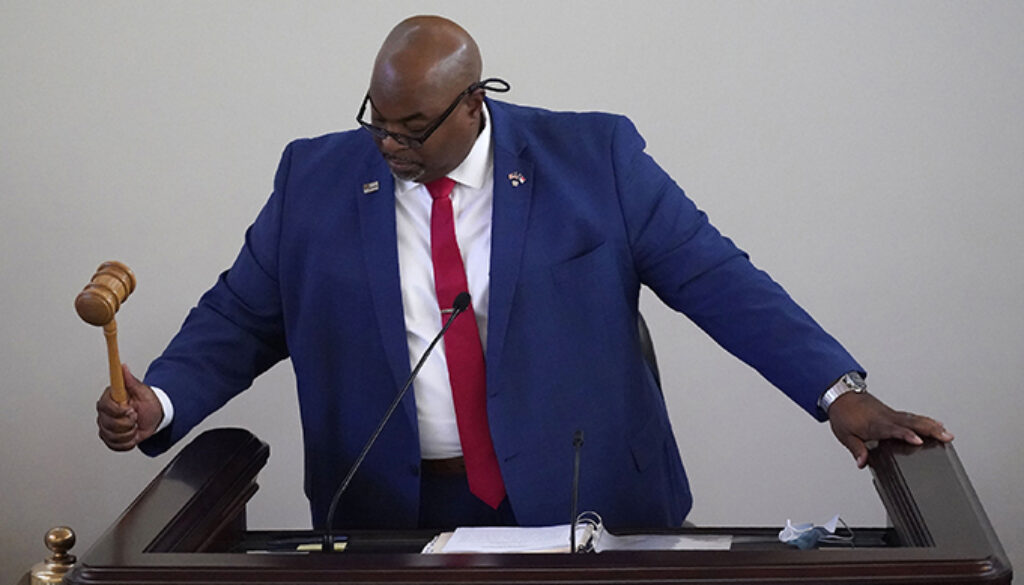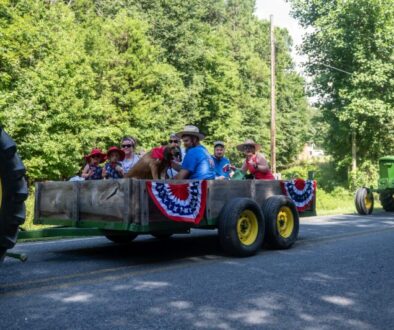General Assembly wraps up long session
RALEIGH — The North Carolina General Assembly wrapped up late Monday nearly all of its work for the calendar year, although vetoes, redistricting rulings or other items could bring lawmakers back to Raleigh for more activity within weeks.
The session, which began the session in January, ended with votes on more than a dozen measures before members of the House and Senate left Raleigh.
One bill heading for Democratic Gov. Roy Cooper’s desk — that sources say he is likely to veto — would prohibit election boards and officials in counties from accepting private money to run elections, which happened in 2020. It was approved on a party-line vote with Democrats opposing the bill. Another measure receiving final approval — spurred on by a stinging state audit last year of Rocky Mount’s finances — places new conflict-of-interest rules upon local government officials across the state, subjecting them to possible felonies when personal financial gain is the result.
The approval of a 35-page measure making mostly technical changes to the new state budget sets aside another $107 million for Piedmont Triad International Airport improvements should an airplane manufacturer choose to expand in Guilford County. The company isn’t identified in the bill text, but one legislator referred to it as “Project Thunderbird.”
Another finalized bill likely to get scrutiny from Cooper in part would prohibit local governments from barring a type of energy service based on the fuel type — such as natural gas, for example.
After Monday, the legislature will hold no-vote meetings until Dec. 10 — a parliamentary maneuver designed to limit Cooper’s time to act on legislation to no more than 10 days.
Then lawmakers could return starting Dec. 30 for limited purposes, such as veto overrides, votes on last-minute negotiated measures between the two chambers and to address bills that are related to redistricting. But legislative leaders said any necessary actions are unlikely to occur until early January 2022.
This year’s session, which began in earnest on Jan. 27, marks the second longest uninterrupted annual session since at least 1965, when calculated by the number of days lawmakers hold chamber floor meetings, according to legislative data.
The longest was in 2001. This year, COVID-19 precautions and aid, a later tax filing deadline and a massive revenue surplus all combined with redistricting to extend the session into the late fall.
Randolph County’s legislative delegation had a busy session. Rep. Pat Hurley (R-Randolph) is the senior member of the delegation. She sponsored 78 bills during the long session, serving as a primary sponsor on 29 bills and the lead sponsor on eight. Eighteen of her bills were passed by both chambers with 17 of those bills becoming law. The final bill, one regarding UNC System requests and COVID policies, is pending action by a conference committee of House and Senate members.
Rep. Allen McNeill (R-Randolph) sponsored the most bills from the Randolph delegation with 102 bills. He was a primary sponsor on 48 bills and the lead sponsor on 18. Twenty of McNeill’s bills became law.
Sen. David Craven (R-Randolph) is serving his first full term in the state Senate. He sponsored 52 bills in the upper chamber serving as a primary sponsor on 19 bills and the lead sponsor on five. Nine bills he sponsored are now law with one additional bill awaiting a conference committee vote. Craven’s bill allowing community colleges to determine eligibility for in-state tuition for recent high school graduates was signed by Roy Cooper marking his first lead-sponsorship of an enacted law.
At the state level, the session was marked by the first comprehensive budget bill that Cooper agreed to sign into law since he took office in 2017, and the first enacted in over three years. There was no such budget approved in 2019 because of a stalemate between the governor and GOP legislative leaders.
The enacted budget included billions of dollars for COVID-19 relief and recovery funds. The bill also included significant income tax cuts for individuals and businesses; average 5% raises for teachers over two years and bonuses of up to $2,800; and 5% raises and bonuses over two years for most rank-and-file state employees.
Republicans gained leverage over Cooper in the budget talks as several Democrats seemed willing to join the GOP in overriding any vetoed budget. Still, Cooper continued to use his veto stamp effectively, given that Republicans lack veto-proof majorities. None of his 12 vetoes this year have been overridden.
Debate on some high-profile bills that idled this year — including those that would authorize sports gambling in North Carolina and legalize marijuana for medical use — could resurface when lawmakers go back to work in 2022.
The Associated Press contributed to this report.
 Twitter
Twitter Facebook
Facebook Instagram
Instagram


